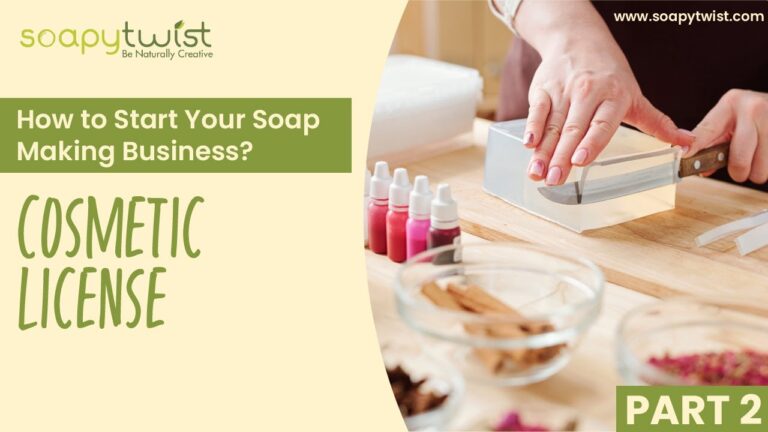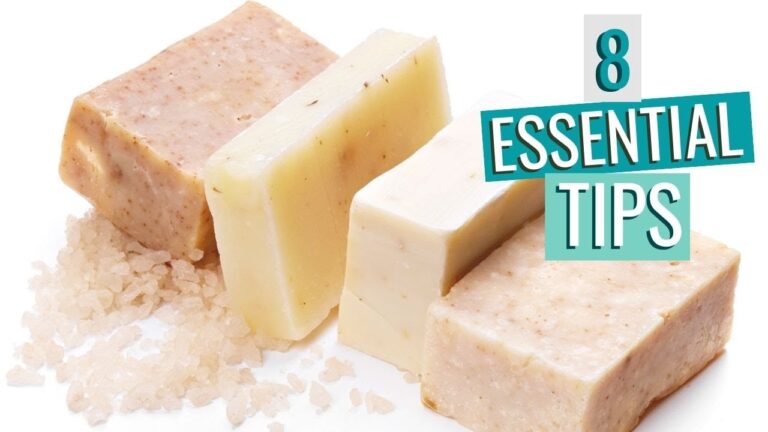Are you in search of high-quality, eco-friendly skincare products? Look no further than handmade soap with organic certification. Handcrafted with care and certified to meet strict organic standards, these soaps offer a luxurious and environmentally-conscious alternative to traditional bath products. Experience the benefits of natural ingredients and sustainable practices with organic certified handmade soap.
Is it possible for soap to receive organic certification?
Soap, made from oils and lye, cannot be certified organic due to the nature of its ingredients. However, it can still be labeled as “Made with Organic” if it meets certain criteria set by the USDA. This distinction allows consumers to make informed choices about the products they use on their skin and in their homes.
While soap may not achieve organic certification, it is still possible for it to contain organic ingredients. By understanding the levels of organic content in soap products, consumers can make decisions that align with their values and preferences. Ultimately, the choice between organic and non-organic soap comes down to personal priorities and beliefs about sustainability and ingredient sourcing.
Can my soap be labeled as organic?
Unfortunately, you cannot label your soap as organic if it does not meet the strict guidelines set by the USDA. As a USDA Certified Organic company, we are not allowed to use the term “organic soap” on our labels. This rule is in place to ensure that consumers are not misled about the true organic content of the product.
It is important to follow the labeling rules set by the USDA in order to maintain the integrity of organic products in the market. Using the term “Organic” on a label without proper certification can lead to confusion and mistrust among consumers. By adhering to these guidelines, you can build a reputation as a trustworthy and transparent company that values honesty in its marketing practices.
If you are looking to market your soap as organic, it is crucial to obtain USDA Organic certification for your product. This certification ensures that your soap meets the strict standards for organic products and allows you to use the term “organic” on your label. By following these guidelines, you can confidently promote your soap as a truly organic option for consumers seeking natural and sustainable products.
Do you require permission to sell soap?
Selling soap is a great business opportunity, and you don’t need any special approval to get started. However, it’s important to do your due diligence and research the specific requirements for selling products in your state. This may include obtaining a general business license or permit, but it’s a relatively straightforward process.
Before diving into the soap-selling business, it’s important to familiarize yourself with any regulations or requirements in your area. While there’s no need for a special license, it’s always best to ensure that you are operating within the legal boundaries. This may involve obtaining a general business license or permit, but once you have that in place, you’re ready to start selling your fantastic soap products.
Navigating the Organic Certification Process
Embarking on the journey of obtaining organic certification can be a daunting task, but with the right guidance and resources, it can be a rewarding experience. Understanding the steps involved in the certification process is crucial to ensure compliance with organic standards and regulations. From documenting farming practices to implementing proper record-keeping procedures, attention to detail is key in navigating the organic certification process.
One of the first steps in the certification process is developing an organic system plan that outlines how your farm or business will comply with organic standards. This plan serves as a roadmap for implementing and maintaining organic practices, from soil management to pest control methods. By carefully documenting every aspect of your operation, you demonstrate your commitment to organic integrity and transparency.
Maintaining open communication with your certifying agency is essential throughout the certification process. Regular communication ensures that any questions or concerns are addressed promptly, helping to streamline the certification process. By building a strong relationship with your certifier, you can navigate the organic certification process with confidence and ease, knowing that you have a trusted partner by your side.
Crafting Clean and Certified Handmade Soap
Are you tired of using harsh, chemical-filled soaps on your skin? Look no further! Our handmade soaps are crafted with care using only the finest natural ingredients. Each bar is carefully formulated to cleanse, nourish, and moisturize your skin, leaving it feeling soft and smooth. Say goodbye to dry, irritated skin and hello to our luxurious, certified handmade soap.
At our soap workshop, we take pride in creating high-quality, artisanal soaps that are free from harmful chemicals and toxins. Our experienced soap makers use traditional techniques to carefully blend natural oils, butters, and essential oils to create a gentle and effective cleansing experience. Each batch is meticulously tested and certified to ensure that you are getting the best possible product for your skin. Trust in our expertise and commitment to crafting clean and certified handmade soap.
Indulge in the ultimate pampering experience with our luxurious handmade soaps. Whether you prefer a refreshing citrus scent or a calming lavender aroma, our diverse range of soaps has something for everyone. Treat yourself to the natural goodness of our certified handmade soap and experience the difference in your skin. Elevate your daily skincare routine with our premium, handcrafted soaps that are as good for the environment as they are for your skin.
In today’s market, consumers are increasingly seeking out products that are not only effective, but also environmentally friendly and ethically produced. By obtaining organic certification for handmade soap, producers can effectively communicate their commitment to sustainable and natural ingredients. This not only appeals to a growing segment of eco-conscious consumers, but also provides a competitive edge in a crowded marketplace. With the demand for organic products on the rise, earning organic certification for handmade soap is not only a smart business move, but also a meaningful way to support a healthier planet.



